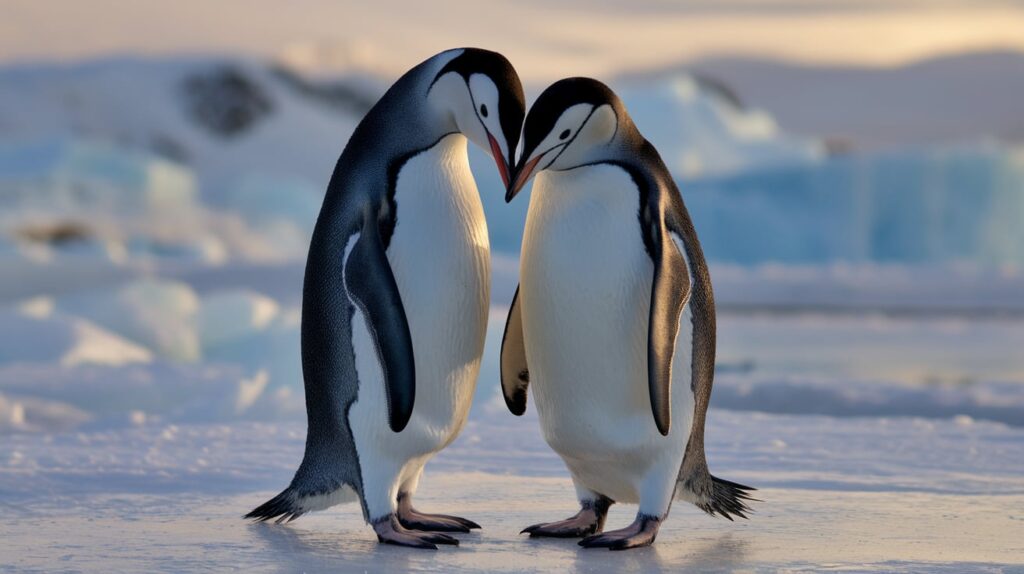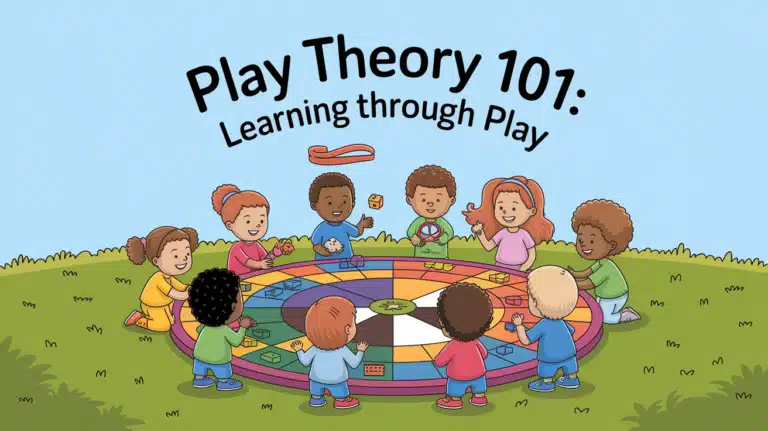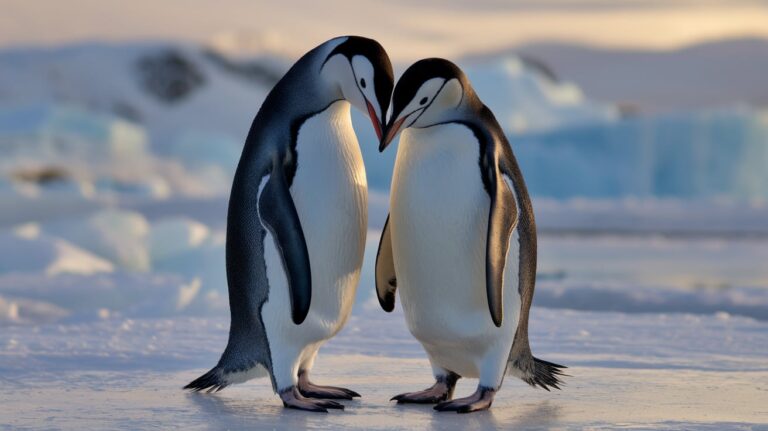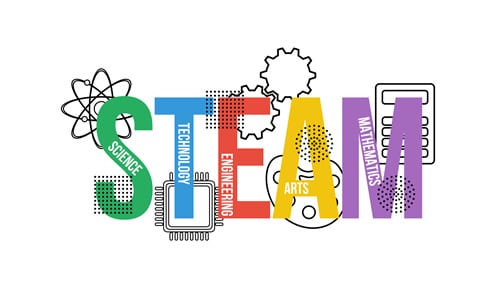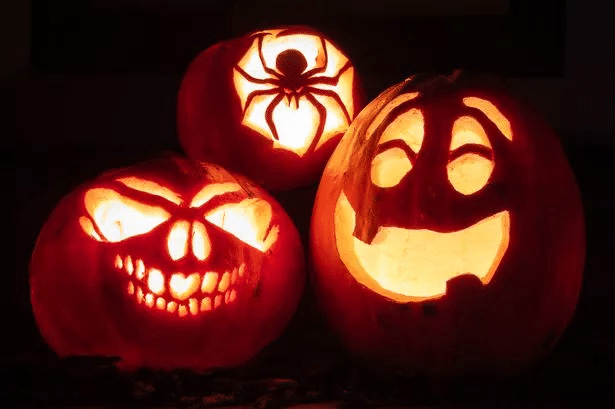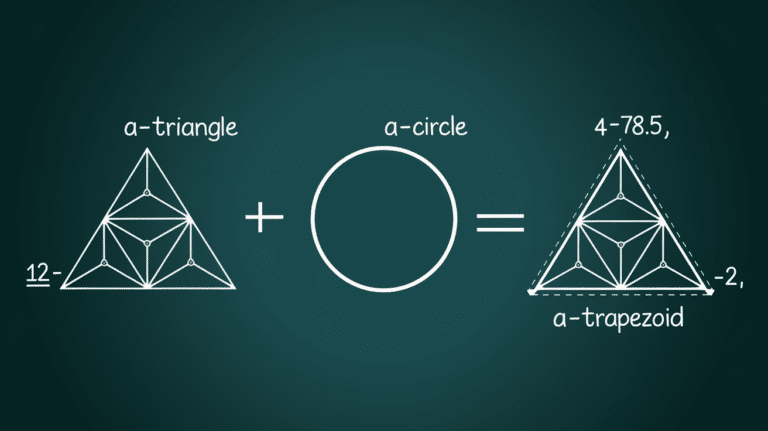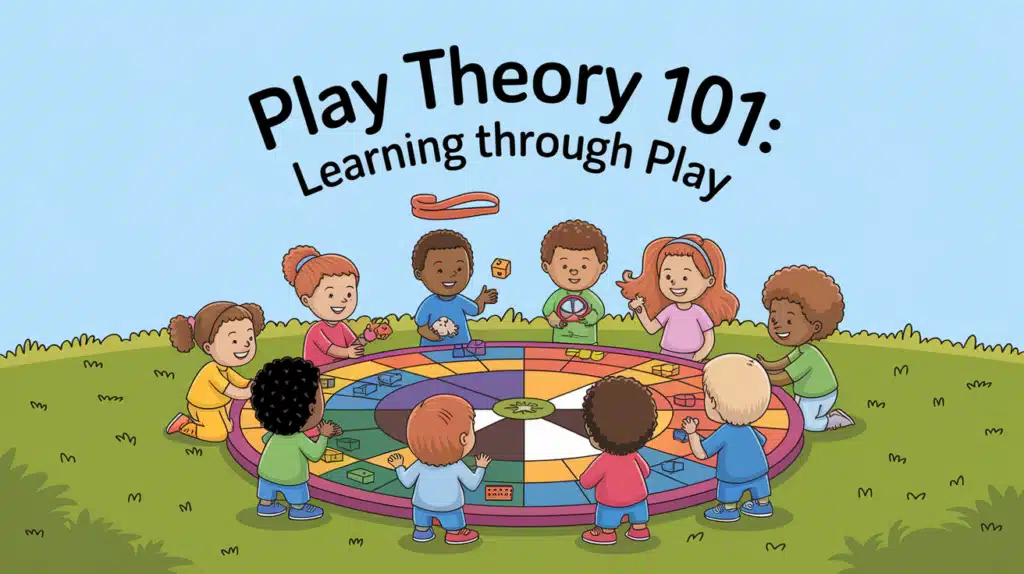Ever wondered what “penguins in love” really look like? Prepare to be amazed by the most heartwarming romance in the animal kingdom.
While human relationships can feel complex, these birds demonstrate a level of commitment that will melt your heart faster than Antarctic ice.
Our blog about penguins in love is a profound of partnership in nature’s most challenging environment.
From carefully chosen stone gifts to incredible shared parenting, these feathered friends hold secrets about building connections that transcend species.
Get ready to see love through a completely different lens.
The Romantic Rituals of Penguins in Love
Penguins have some of the most endearing and unique romantic rituals in the animal kingdom.
From pebble proposals to affectionate bonding, these behaviors reveal the deep commitment and love penguins share.
The Pebble: A Love Token in the Frozen World
In the harsh, icy landscapes of Antarctica, penguins have developed a unique and charming way of finding love. Male penguins transform the simple act of stone-gathering into an art of courtship that would melt even the coldest heart.
When a male penguin decides to win a mate, his mission begins with a careful search across the rocky terrain. He’s not just picking up any stone – he’s looking for the absolute perfect pebble.
Imagine a penguin waddling around, turning over stones, feeling each one with his beak, searching for the smoothest, most symmetrical rock he can find.
This isn’t just a random collection. Each pebble is a carefully selected gift, a symbol of the male’s commitment and ability to provide.
He’ll spend hours, sometimes even days, finding the ideal stone – smooth, round, and free from sharp edges. It’s like a marriage proposal wrapped in a single, carefully chosen rock.
When he finds the perfect pebble, he presents it to a potential mate with all the hope and excitement of a suitor offering an engagement ring.
The female’s response is telling. If she accepts the stone, she will carefully place it in the spot where they will build their nest together. It’s her way of saying, “Yes, I choose you.”
Why the Stone Matters More than You Might Think
The pebble isn’t just a romantic gesture – it’s a practical tool for survival. In the freezing Antarctic environment, these stones play a crucial role in penguin family life.
When penguins build their nests, the carefully collected stones serve an important purpose: they keep the eggs above the melting snow and icy water.
Male penguins invest significant time and energy in finding the right stones. It’s not just about looks – these stones are essential for protecting their future family.
Each pebble is a testament to the male’s dedication and ability to provide for his mate and future chicks.
But love among penguins is complex. While the perfect stone matters, it’s not the only factor in choosing a mate. Scientific studies suggest that females look at multiple qualities.
A male’s ability to find good stones is just one of many traits that make him an attractive partner.
Researchers have observed that females also consider:
- The male’s overall health
- His ability to protect the nest
- His previous success in raising chicks
- His hunting skills
The pebble proposal is more than a cute ritual – it’s a carefully choreographed dance of survival, love, and partnership.
In the world of penguins, a simple stone can mean the difference between a successful family and a challenging season in the coldest place on Earth.
Building Love and Life Together: The Penguin Family Story
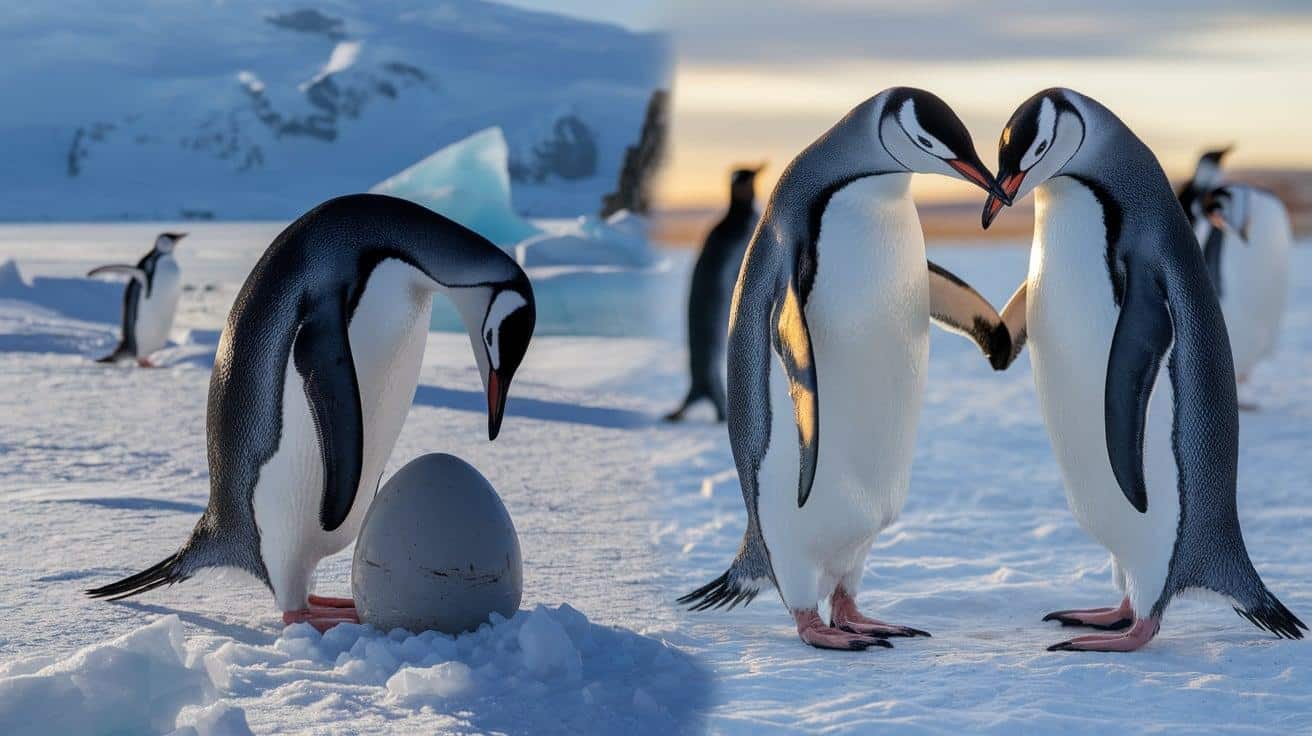
Penguins showcase the true meaning of teamwork and dedication in family life.
From shared parenting duties to lifelong bonding, these amazing birds offer valuable lessons on love, commitment, and the power of partnership in raising their young.
Sharing Parenting Duties: A Perfect Partnership
In the icy wilderness of Antarctica, penguin parents redefine teamwork. These amazing birds share every aspect of child-rearing with incredible precision and care.
When one parent needs to hunt for food, the other stands guard, keeping their precious egg or chick warm and safe.
They take turns sitting on eggs, sometimes for weeks, ensuring constant protection from the brutal cold and potential predators. This tag-team approach is critical for survival in one of the world’s most challenging environments.
Some penguin species will travel hundreds of miles to find food, knowing their partner is faithfully maintaining the nest.
Their synchronized parenting demonstrates a level of cooperation that would impress even the most organized human families.
Affection and Bonding: Love Without Limits
Penguins are the true romantics of the animal kingdom, expressing love with amazing openness and passion.
When reuniting, some species perform elaborate greeting dances, singing and hopping around to show their joy.
Parent penguins constantly show affection to their chicks through gentle beak touches that look like tiny kisses. These aren’t just random moments – they’re crucial for bonding, warmth, and protection.
Many penguin couples form lifelong partnerships, staying together for years or even entire lifetimes.
They recognize each other through unique calls and movements, creating a bond that goes far beyond simple animal instinct.
Their love is patient, consistent, and deeply committed – a testament to the power of partnership in the animal world.
Communication in the Colony: Voices of Connection
Finding your family might seem impossible in a massive penguin colony. Yet, these incredible birds have developed a sophisticated communication system that allows them to connect effortlessly.
Each penguin has a unique vocal signature, enabling parents to find their specific chicks among hundreds or thousands of similar-looking birds.
Their communication goes beyond practical needs – it’s an emotional language of survival and connection.
When conflicts arise, penguins express themselves using specific calls and body language and quickly resolve issues without holding grudges.
They’ll ruffle feathers, make sharp sounds, or perform small gestures to communicate. Within moments, they return to their collaborative partnership, working together to survive in their challenging Antarctic home.
In the world of penguins, love is more than just a feeling – it’s a daily commitment.
From sharing parenting duties to expressing affection and communicating clearly, these amazing birds show us that true partnership means working together, supporting each other, and facing challenges as a team.
The Social Side of Penguin Love
Penguins thrive in tight-knit communities, where relationships extend beyond their mates.
From cooperative parenting to social interactions within their colonies, these birds demonstrate the importance of family, teamwork, and shared experiences in creating strong emotional bonds.
Life in the Colony
Penguins form large groups called colonies or rookeries. These communities help them connect and build lasting relationships. Penguins play together by sliding on ice and swimming in groups. These fun activities make their bonds stronger.
Family is key to penguin life. Relatives stay close, with many generations living in the same colony. Young penguins often return to their birth colony as adults.
Penguins can identify each other’s calls among thousands. This amazing skill helps parents find their chicks and mates locate each other after food trips.
Staying Safe Together
Colony life keeps penguins safe. Many eyes spot danger quickly, and warning calls spread fast when predators approach. The whole group can react together when threats appear.
During cold weather, emperor penguins huddle tight. They take turns moving from outer cold spots to the warm center. This team effort helps everyone survive harsh winters.
Penguins keep clean as a group. They groom themselves and each other, removing salt from feathers after ocean swims. They bathe together in pools, splashing and preening with friends.
Some penguins watch over groups of chicks, while others hunt for food. This “daycare” system protects the young from birds that might attack them. The community cares for all, not just close family.
The Realities of Penguin Relationships
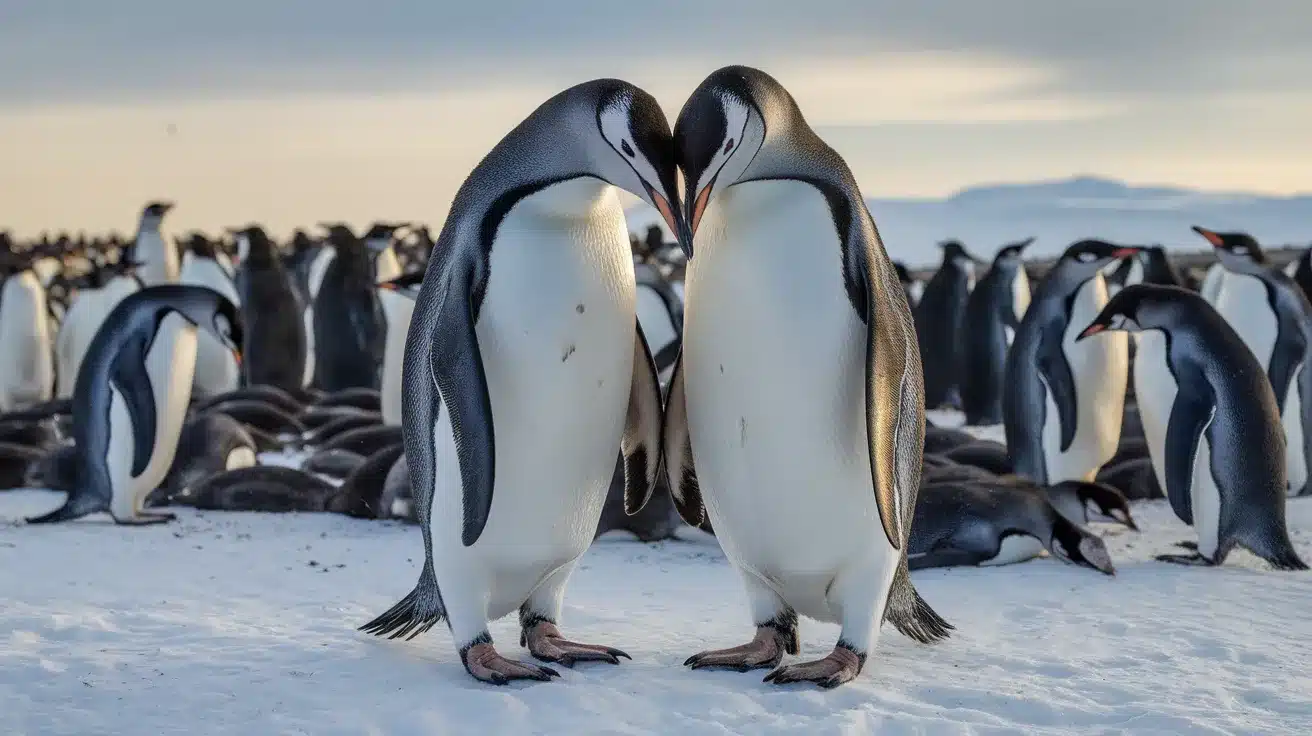
Penguin relationships are not always straightforward. While many penguins form lifelong bonds, some face challenges like separation or even infidelity.
This section tells about the complexities of their partnerships, highlighting the dynamics of loyalty, change, and survival.
Faithfulness and Lifelong Bonds
Many penguin species choose one partner and stay together for years or even their whole lives. After finding a good match, they return to the same spot each breeding season to meet their mate again.
When a penguin loses its partner, it doesn’t always stay alone. Scientists have watched widowed penguins find new mates. They go through a careful selection process to find another good match.
When Love Gets Complicated: Cheating and Divorce
Not all penguin pairs stay together forever. Research shows that after poor breeding seasons with few chicks, more pairs split up. This “divorce” happens when one or both birds find different mates the next year.
Penguins may seek new partners to try for better breeding success. If a pair couldn’t raise healthy chicks together, finding someone new might help their chances next time.
Sometimes, penguins cheat on their partners. Researchers have seen paired birds mate with others besides their main partner. This behavior might be a way to test potential future mates.
Costs of Changing Partners
Finding a new mate takes time and energy. Penguins who switch partners often start breeding later in the season, which can mean less time to raise their chicks before harsh weather comes.
New penguin couples don’t always work well together at first. They need time to learn each other’s habits and develop teamwork for nest-building and chick care. First-time pairs often raise fewer chicks successfully.
The old saying “practice makes perfect” applies to penguin pairs too. Couples who stay together for multiple seasons get better at raising chicks, taking turns keeping eggs warm, and finding food for their young.
Relationship Lessons from Penguins in Love
Penguins in love offer valuable lessons for human relationships.
From shared responsibilities to the importance of communication and affection, these amazing creatures teach us how to build strong, supportive, and enduring connections with those we love.
Lesson 1: Support Each Other
Penguins gather in large groups called rookeries, where they care for one another. They stand close during storms and warn each other about dangers.
This shows us how important it is to build a strong support system with family and friends. Having people who care about us helps us feel safe and happy.
Lesson 2: Communicate with Care
Penguins use special calls that help mates find each other among thousands of birds. They bow, point, and make sounds to share feelings and needs.
Like penguins, humans need clear talking and listening. Good communication helps solve problems and builds trust between people who care about each other.
Lesson 3: Share Responsibilities
When raising babies, penguin parents take turns. While one watches the egg or chick, the other gets food. This fair sharing helps both the parents and the baby.
Couples who split tasks like cooking, cleaning, and childcare often feel more connected and less tired. Teamwork makes life better for everyone.
Lesson 4: Have Fun Together
Penguins spend time playing, sliding on ice, swimming together, and splashing in water, which helps them bond. Humans need play, too.
Laughing and doing fun things with loved ones create happy memories and help us feel close. Simple joys like games or walks build stronger connections.
Lesson 5: Show Affection and Love
Penguins touch beaks (like kissing), groom each other’s feathers, and stand side by side. This touch keeps their bond strong.
Humans also need hugs, hand-holding, and gentle touches. Physical contact releases feel-good brain chemicals that help us feel loved and connected. Small acts of love matter every day.
Penguins and Conservation
Penguins are not only symbols of love and loyalty but also of the urgent need for conservation.
Climate change, overfishing, and habitat loss threaten these incredible creatures, making it essential to support efforts to protect them and their environment.
Facts about Penguins
- Interest in penguin relationships has raised awareness about their survival challenges.
- 10 of 18 penguin species are now at risk according to conservation groups.
- Climate change melts the sea ice that penguins need for breeding and finding food.
- Overfishing reduces penguin food supplies.
- Oil spills damage feathers, affecting swimming and insulation.
- Places like Selwo Marina support education about penguin protection.
- Conservation efforts include creating protected areas and fishing regulations.
- You can help by reducing plastic use and supporting wildlife organizations.
Wrapping Up
Penguins in love teach us lessons about relationships that transcend species.
From carefully selected pebble gifts to intricate family dynamics, these birds show us that true love is about daily dedication.
It does not end here, but also to provide Mutual support and work together through life’s challenges.
Their world reminds us that partnership means standing side by side, communicating with care, and cherishing each moment.
As we reflect on the lives of these Antarctic lovers, we’re invited to bring a little more penguin wisdom into our connection.
For more such interesting blogs, please go through our website!

